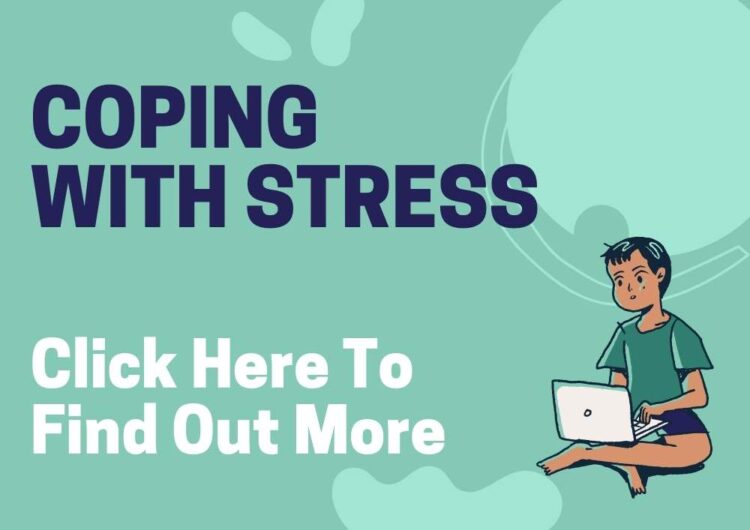If you don’t beat your stress, it might just beat you!
Stress is identified as a major issue by the Mental Health Foundation in the United Kingdom. Stress and depression are two of the most common issues among people in the United Kingdom, affecting between 20% and 25% of all people. Another British study revealed that 44 percent of people suffer from long-term stress.
According to a Harvard School of Public Health poll done in the United States, one out of every four respondents had “significant stress” in the previous month. According to the same study, half of all people, or 115 million people, had a “severe stressful event” in the previous year. Obviously, stress is an issue.
There would be no need to worry if stress did not cause such a wide range of major health problems in both your body and mind. Chronic stress, as well as occasional stress and anxiety, can result in the following hazardous and potentially fatal health conditions:
Asthma • Headaches • Dental issues • Poor relationships and love life • Sleep difficulties • Chronic pain • Eating disorders • Substance misuse • Parkinson’s disease
• Arthritis • High blood pressure • Depression • Alzheimer’s • Diabetes • Skin disorders • Hair loss • Shorter lifetime • Premature ageing
Stress has the ability to be both poisonous and incapacitating. It is a normal and, to some extent, inescapable part of the human experience. Having said that, you may be able to significantly reduce your stress exposure while simultaneously increasing your stress and anxiety response. The ten suggestions below can assist men, women, and children of various ages and cultures in gaining control of their stress levels.
1 – Continue to Engage in Physical Activity
Exercising should be regarded as a fantastic activity. This is not limited to the activities that most people associate with exercises, such as jogging, weight lifting, or treadmill walking. Physical activity benefits both the mind and the body. Nowadays, the majority of individuals are sedentary. We are not always on the move, hunting and gathering food while avoiding predators, like our cave-dwelling forebears were. This implies you may need to make time in your daily schedule to indulge in physical activity.
According to a study, adding one hour of moderately intensive to extreme physical activity to your daily routine will aid stress reduction and prevention, keep your mind and body sharp, and help you live longer than people who do not exercise and stay active.
2 –Meditate to Relieve and Prevent Stress
Meditation’s exact roots are unknown. Archaeologists and literary experts, on the other hand, believe that meditation has been practised since at least 3,500 BC. The first documented instances of specific meditation techniques date back to at least 1,500 BC. For generations, humans have utilised mindful meditation to relieve stress and for a variety of other mental and physical benefits. Regular meditation practice also aids in the prevention of stress in the first place.
3 – Choose an Objective Investigate the Situation
In our daily lives, we have a tendency to exaggerate events and circumstances. This is a self-preservation act that is compassionate. When something terrible happens, your natural instinct is to overestimate the significance of the occurrence. This ensures that you will react in some way and is intricately tied to our fight or flight reaction. Regrettably, this process can cause hormone imbalances, which can lead to physical and psychological stress.
Examine what is causing your bad scenario objectively. Rather than being present for the event, view it as if you were watching a movie or reading about it in a book. This allows you to efficiently prioritise the level of stress present and deal with it accordingly.
4 – Consume Healthily
The amount of stress in your life has a huge impact on your fitness and health, particularly on the inside. Numerous scientists and health authorities, for example, have discovered a correlation between an unhealthy digestive system and higher-than-average stress levels. Anxiety and stress may arise if you are suffering symptoms relating to your digestive system, stomach, or intestines. Unfortunately, sadness, worry, and stress can all contribute to or be the cause of a rash of gastrointestinal issues.
When you have a digestion problem and/or are always anxious, you create an unfavourable feedback loop that feeds on itself, exacerbating your anxiety and emotions of hopelessness. Reduce your diet of processed foods while increasing your intake of fresh, raw, and organic fruits and vegetables. Water should be consumed in large quantities. A smart diet keeps your internal systems running smoothly and has been shown to aid in the avoidance and management of stress.
5 – Limit the number of triggers you use.
You’re most likely aware of a number of elements that contribute to your worry, happiness, or agitation. Limiting your exposure to specific “triggers” is a simple strategy to reduce stress. We all establish bad habits from time to time, and the majority of the time it is an unconscious process. Take a time to analyse what stresses you out.
Examine the list and cross out any people, places, or things over whom you have authority. At the absolute least, you may be unable to avoid dealing with a coworker that often contributes to your workplace stress levels. You can, however, limit your interaction with that person outside of work, lowering the likelihood that they will create an upsetting circumstance for you to deal with.
6 –Support Low-Stress Environments
Your awake hours are mostly spent at work and at home. In those two situations, you frequently have some control over your surroundings. Reduce visual distractions at home and at work. Repeat for any other noises or sounds over which you have control.
Your mind is continuously and unconsciously looking for ways to absorb the information it gets from your five senses. That is the function of your sensory network: to assist you in processing your surroundings. When the number of distractions competing for your brain’s attention is reduced, so is your risk of stress, anxiety, and depression.
7 – Take Some Time Off
Some parents put their children in a “timeout” when they engage in unacceptable behaviour. This helps the child to reflect on their inappropriate actions. You can also take a timeout the next time you feel uneasy. This allows you to relax your thoughts and reset your brain processes while also lowering your anxiety and stress levels.
Allow for 10 to 20 minutes of soothing music. As previously stated, meditate or do a short session of Pilates or yoga. Get a massage, go for a walk, or simply find a quiet, serene place to unwind. This method does not prevent stress, but it does efficiently cure it when it occurs, and it can be used almost anywhere.
8 – Limit your caffeine, smoke, and alcohol use.
Beer, wine, liquor, coffee, energy drinks, and sodas can all cause hazardous energy spikes and crashes. Tobacco usage is linked to a slew of negative health outcomes. All of these things can contribute to an increase in your worry, despair, and stress. Aside from the physical link (excess coffee, cigarettes, and alcohol are all lethal when used in excess), emotional concerns may occur.
Individuals who abuse drugs or alcohol frequently experience a loss of emotional control. When a chain smoker is unable to satisfy their nicotine addiction as quickly as they need it, they become frightened and “freak out.” When cigarettes, alcohol, and coffee control you rather than the other way around, your mental and physical health may suffer significantly.
9 – Spend Some Quality Time with Mother Nature
Did you know that going on a “nature walk” changes the way your brain develops? Hormones have an important role in emotional regulation. These same hormones are intricately linked to and control a variety of brain processes. The brain’s ability to process sensory data is crucial. Because your brain, hormones, and emotions are all intertwined, a new study (from the early twenty-first century) suggests that taking a simple walk in a park or field may help you relax and relieve stress.
Gregory Bratman attended Stanford University’s Emmett Interdisciplinary Program in Environment and Resources as a graduate student in 2015. He and his colleagues discovered that walking for a few minutes in a lush, green, natural setting made people happier, more attentive, and less anxious than walking in heavy traffic for the same amount of time. A similar study conducted at the University of Oregon in the United States and published in the Wall Street Journal revealed a correlation between nature and decreased levels of stress and anxiety. When you’re feeling anxious, spend more time outside with Mother Nature.
10 – Get Enough Sleep
It turns out that your parents were correct when they told you to go to bed early as a child. The bodies of children are continually changing and expanding. As a result, they require more sleep on a constant basis than adults. Adults, on the other hand, require an adequate quantity of sleep. Numerous sleep studies conducted in the United States dating back to the 1950s show that people need between 7 and 8 hours of sleep every night for optimal mental and physical health.
When you don’t get enough sleep, your internal systems become “out of sync.” This can lead to a variety of uncomfortable and worrying situations, such as being late for work because you can’t get out of bed in the morning. When people are tired in the morning, they tend to consume sugary, caffeine-filled energy drinks and sodas throughout the day. These elements contribute to energy surges and crashes, which in turn contribute to increased anxiety and stress.
Brought to you by: orientalmedicine.co.uk
The post The 10 Most Effective Ways To Treat Stress appeared first on https://buydroppeddomains.com
The post The 10 Most Effective Ways To Treat Stress appeared first on https://wookicentral.com
The post The 10 Most Effective Ways To Treat Stress appeared first on https://gqcentral.co.uk


Comments are closed